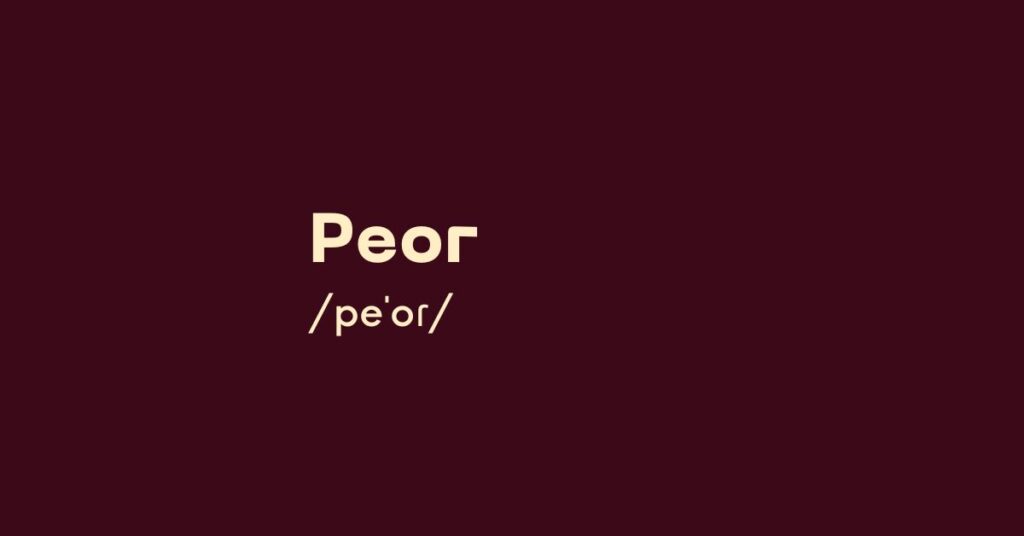Today’s Spanish word of the day is “peor”.
It means “worse” or “worst”, and can be used as an adverb or an adjective.
When preceded by a definite article such as “el”, “la” or “lo”, the word “peor” translates as “worst”. Otherwise, it translates as “worse”. Contrast the following:
- Este café es peor que el que tomé ayer. – This coffee is worse than the one I had yesterday.
- Este es el peor café que he probado. – This is the worst coffee I’ve ever tasted.
The word “peor” comes from Latin peior, which may have originally meant “stumbling”, suggesting a metaphorical connection between things being worse and falling to the ground. The Latin word peior is also the root of a few English words including “impair” and “pejorative”.
Here are a few Spanish idioms involving the word “peor”:
- De mal a peor – From bad to worse.
- Peor es nada – Better than nothing (literally “worse is nothing”).
- De Guatemala a Guatepeor – Literally “from Guate-bad to Guate-worse”. This is a humorous pun on the name of the country Guatemala, which contains the word “mala” (bad), swapping it for the word “peor” (worse).
Example sentences
El peor error que puedes cometer es no intentarlo.
The worst mistake you can make is not trying.
La situación económica del país va de mal a peor.
The country’s economic situation is going from bad to worse.
¿Crees que la gramática española es difícil? ¡La francesa es peor!
You think Spanish grammar is difficult? French is worse!
Ella siempre espera lo peor.
She always expects the worst.
Sabíamos que la tormenta sería dura, pero esto es peor de lo esperado.
We knew the storm would be rough, but this is worse than expected.

